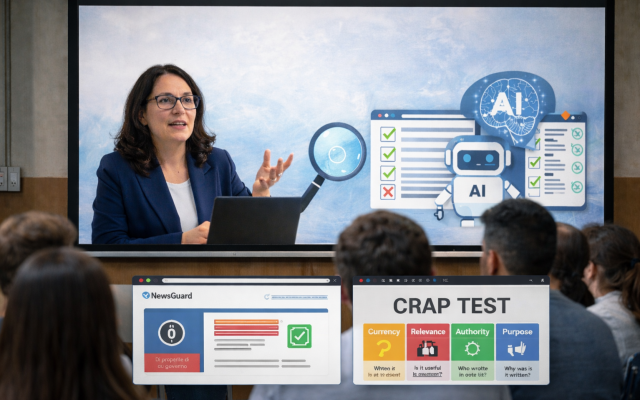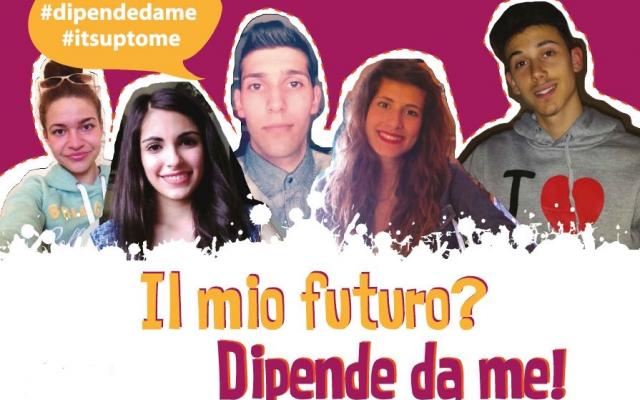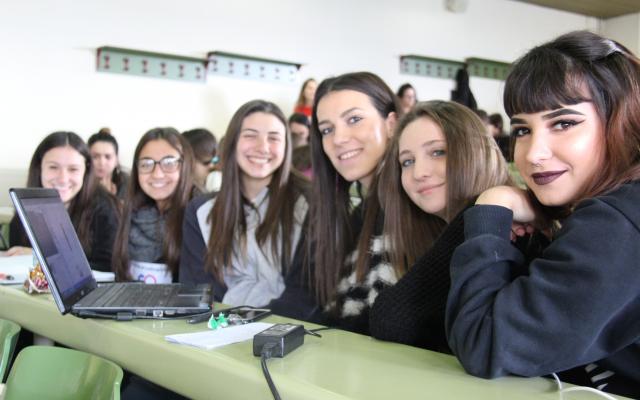Five challenges on climate change in five university departments
As per yesterday’s preview, today over 140 students from secondary schools from the city and province are expected for a special day at the University of Palermo for A Passion for Steam, resolutely pursued by Beatrice Pasciuta, Deputy Rector for Inclusion, Equal Opportunities, and Gender Policy. The five hackathons in as many departments will address a common challenge on “one of today’s most debated and heartfelt issues,” explain the organisers. And the challenge takes place the day after Earth Day, which involves over one billion people in 192 countries around the world each year.
The challenge: “Today, we would like to develop and ideal integrated course starting from measurements on the environment and area (Coding with Arduino). We then will analyse this empiric data through simple statistical tools (Data Science) and raise awareness on this information by publishing it on a website (Secure Communications). Moreover, we want to create an app to provide this information in a custom-tailored manner (Developing an App with code.org). Last but not least, we will see how climate change influences molecules that compose the space around us (Metaverse for Chemistry)”.
“Clearly, such a course is intrinsically sequential, and we could not develop it simultaneously through all the hackathons,” the organisers specify. “So, for each aspect addressed by the 2024 edition of Coding Girls in Palermo, we will organise various activities that compose such a course but are independent.”
Here are the various hackathons addressing climate change.
- Coding with Arduino
Program an Arduino chipset to measure the temperature in different parts of our building at different times. Can we insert alarms if the temperature is too high? - Coding with Python
Develop code in Python to allow users to explore different scenarios. Based on user decisions, the world will be green, or hot. For example: what do you use to go to work? Car or bicycle? How do you heat your house? Solar panels, wood stove, or gas heater? - Paradoxes in Statistics and Probability
We collect and analyse environmental data (time series and predictive climatological models); students will have to evaluate the probability of extreme events based on observed data and/or on the predictions obtained through the models. - Secure Communications
Suppose we have programmed an Arduino chipset to collect temperature data and we want to transmit the data collected by the sensors to a server. What can we do to protect our data and optimise the consumption of our system in order to make it more sustainable? - Developing an app with code.org
Let's develop an app that measures our ecological footprint, that is, how many raw materials we consume and how many pollutants we produce with our lifestyle. The size of our personal CO2 footprint depends on our behaviour: our diet, our consumption patterns, and the way we move and live. This footprint can be measured through a quiz, a game, or storytelling. - Metaverse for Chemistry
The students will illustrate, through the metaverse, the characteristics, applications, and uses of one of the molecules that will be selected amongst those chosen for the competition. They will all be substances whose use allows us to reduce the impact of human activities on the planet. The students will use software for the representation of molecular models and any other media that they deem appropriate.
How did the schools prepare for such a challenging day? Did the teachers also participate actively? How involved did they feel?
“For me, Coding Girls is a blast from the past. I too was a “coding girl”. Since I began teaching at school I haven't written a program, but you can't forget what you learn. I taught myself to code codes when I was in high school, and this ability was very useful to obtain my degree in Physics and in my subsequent research activity. Picking up a C/C++ code again was like returning to the sea on the first day of summer,” says Rita Betta, who teaches Mathematics and Physics at the Giovanni Meli School in Palermo. “I immediately joined Coding Girls, for educational reasons, as the fifth-year class I teach still had to participate in a PCTO project for the state exam interview. Moreover, amongst the conceptual issues on which to focus for the oral exam, the class council had chosen women and female representations. Therefore, the topic addressed by Coding Girls fit perfectly into the teaching plan chosen at the beginning of the school year. Finally, the Ministry recommended strengthening Steam disciplines in all schools of all types.
Coding Girls is a decidedly positive experience both for me and for my students. A stimulating opportunity for me to learn something new because I didn't know much about Arduino chipsets. As a teacher I believe I have acquired new skills that may be useful to me in the coming years not only in the lab, but also in the classroom. I will be able to carry out simple experiments with electrical circuits, using my computer, an Arduino chipset, a breadboard, and some basic electronic components, in complete safety and with rapid implementation times. It’s a lab learning opportunity for my students who are used to traditional high school teaching activities. Coding Girls was a totally new experience, which introduced them to the world of electronics and information technology in a different way. The opportunity also served to strengthen transversal relational skills, such as the ability to work in groups and collaborate with others, or, for some of them, to acquire new digital skills.”
“It is a different approach to disciplines that are not simple and within the reach of everyday life. By participating in this project, I noticed the students’ enthusiasm as they experienced a more realistic approach to the disciplines they study,” explains Rosanna Amato, a physics teacher at the Felicia e Peppino Impastato high school in Partinico, who accompanied a fifth-year class. “With a class that already participated in this type of activity last year, we chose the metaverse and chemistry challenge that they preferred,” confesses the teacher. “The students are so stimulated that they drag us along and ask us to introduce this type of teaching.”




